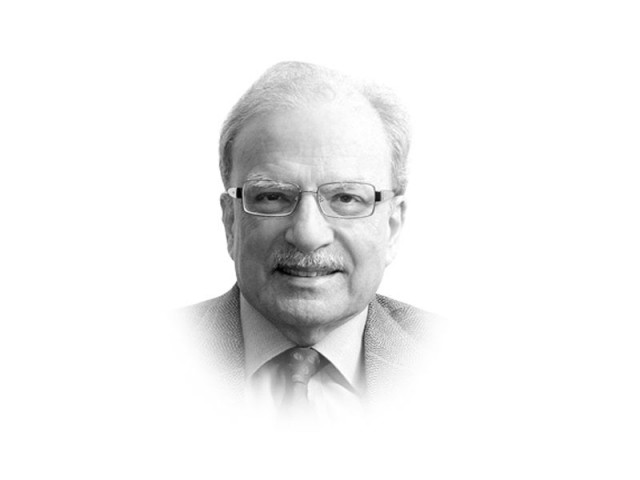Negotiating with the Taliban groups
Durable peace only returns once the grievances that supported the rebels are fully addressed

The writer is a former caretaker finance minister and served as vice-president at the World Bank
Afghanistan and Pakistan’s efforts to fight terrorist organisations operating from their territories are proceeding along the lines I spelt out in my article in this space last week. In it, using the typology developed by Paul Staniland, I divided the Taliban in Afghanistan and Pakistan into two distinct groups. Each will have to be dealt with differently. The Afghan group belongs to the category Staniland labeled “integrated groups”; the one in Pakistan is that of “parochial groups”.
The first has a clear command structure and a fairly well developed set of objectives it seeks to pursue. Initially, it used violence to establish legitimacy within the population it hopes to represent. Once it gained confidence that a large segment of the population had its support, it was prepared to use negotiations to gain a position in the political space around it. The Afghan Taliban have been ready to negotiate for some time with the regime in Kabul. This was something encouraged by both the US and Pakistan.
The use of negotiations as a way of resolving the Afghan problem was first advocated by Pakistan. Ultimately, the Americans came around to the same conclusion. Working together, Islamabad and Washington encouraged the establishment of a Taliban office in Doha, the capital of Qatar. However Kabul, then governed by Hamid Karzai, a maverick leader, was upset when the Taliban flew their flag from the building they had rented in Doha and put a plaque announcing that it was the office of the Islamic Emirate of Afghanistan. This was the name they had given to the country when they governed it from 1996 to 2001.
Now Afghanistan is under the command of a stable and pragmatic leader. Working with Pakistan, he is prepared to once again negotiate some kind of an arrangement with the insurgent group. What should Kabul and Islamabad aim to achieve if negotiations do begin? Before answering this question, I need to say a few words about the situation on the Pakistani side of the border.
Pakistan, too, adopted negotiations as the right approach to deal with the situation created by the Taliban in its tribal areas. This was a mistake. The political masters did not seem to have appreciated that the only thing common between the two groups of dissidents operating in Afghanistan and Pakistan was their name. The Pakistani Taliban were not organised into a tightly administered group, as were those operating in Afghanistan. They were, in fact, a cluster of many groups with very different objectives. There could not be a single negotiating agenda to deal with them. Some of them were focused on creating an Islamic judicial system in the territories from which they operated. That was the system that had worked for decades but was abandoned in the name of modernisation by the Pakistani state. Some other wanted to create an Islamic state in the territory that was now Pakistan. It was difficult and imprudent to attempt to create common ground for such diverse interests.
It is the use of force that has brought the Afghan Taliban to the negotiating table. It will be the use of force that will splinter the Pakistani Taliban group into factions that will be easier to deal with since each will then be able to indicate what it wishes to obtain from the political and economic systems. The use of force in Afghanistan has delivered the most that could be expected of it: the realisation that the dissident forces cannot achieve their goal through the barrel of the gun. That realisation will eventually also come to the groups in Pakistan but more work will need to be done by the state before that point is reached.
As the work done in institutions such as the World Bank that have studied what they call post-conflict societies suggests, durable peace only returns once the grievances that supported the rebels are fully addressed. Even if the insurgents lay down their arms, they will take them up again if they continue to feel that the state and the associated governing apparatus continue to discriminate against them. There is another problem that also needs attention: prolonged periods of rebellion against the state create strong economic interests among the insurgent leaders. Those interests have also to be dealt with. These challenges, I believe, can be handled by an organisational arrangement we could call the Tribal Development Board. I will have more to say about this next week.
Published in The Express Tribune, March 2nd, 2015.
Like Opinion & Editorial on Facebook, follow @ETOpEd on Twitter to receive all updates on all our daily pieces.















COMMENTS
Comments are moderated and generally will be posted if they are on-topic and not abusive.
For more information, please see our Comments FAQ